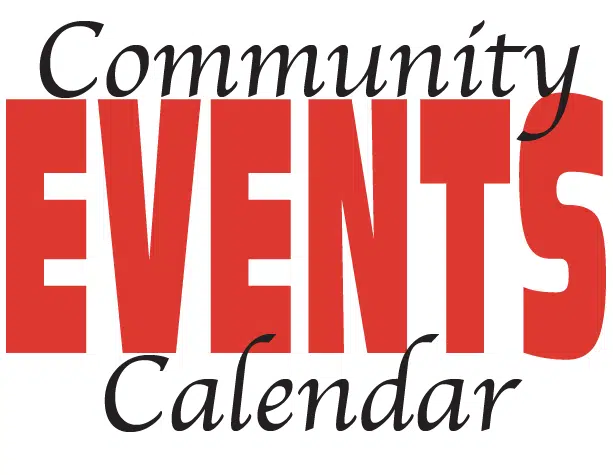The winner of the annual Voice of Democracy audio essay contest has been announced.
In a news release to KVOE News Wednesday, Gary Post, project chair and member of the Veterans of Foreign Wars Post 7957, announced this year’s winner was USD 252 Southern Lyon County freshman Megan Barnhart. Barnhart’s essay focused on the theme “Is America Today Our Forefathers’ Vision?” which was selected by the VFW Commander-in-Chief.
For winning the contest, Barnhart was awarded $50 from VFW 7957 and will have her essay submitted to the VFW District 2 competition with hopes of moving onto the national level. Begun in 1947, the Voice of Democracy is an annual scholarship program for high school students sponsored by the VFW that involves writing and recording an audio essay on a patriotic theme.
Is America Today Our Forefathers’ Vision?
by Megan Barnhart
America today is a very complex and diverse place, but wasn’t this statement also true in 1787? When the Founding Fathers gathered in Philadelphia with the intent of revising the Articles of Confederation, the initial document that formed our nation’s government, their goal was to strengthen the central government and better unite a nation of 13 states, each with unique cultures and separate interests, and most certainly-issues of diversity. It is no wonder that in order to achieve their goals, the delegates to the convention would wind up creating a completely new form of government under The Constitution of the United States of America. There is no question that when crafting this document, our forefathers’ vision included some big ideas about freedom, equality, and justice that could be carried out by a strong central government and properly maintained by a system of checks and balances. There is no question that our Constitution has stood the test of time and has served as a model for effective governments around the world. However, with all that has changed in America since 1787, the question is…How closely does the country we live in today align with our forefathers’ vision of the future?
One of the main visions of our forefathers was freedom. They wanted a country where people could speak their minds and live without fear while holding and expressing different views and opinions. In many ways, America still upholds these freedoms. The First Amendment protects the freedoms of speech and religion, and these rights (among others) are deeply embedded in American culture. America is still a place where people are able to speak and worship as they choose. However, technology has brought new challenges that threaten these rights. Our forefathers were wise enough leaders to know that they could not reasonably predict all of the ways our nation and our world might change over time. Specifically, could any of them have envisioned the development of the Internet, electronic commerce, identity theft or other computer-based crimes? Social media outlets, for instance, have created platforms for free expression but have also become places where misinformation, disinformation, and hate speech can run rampant. Electronic commerce has become commonplace and a requirement in many situations, but it puts citizens at a higher risk for becoming victims of cyber crimes. Could our forefathers have predicted there would be cell phones, video cameras and GPS systems tracking our every move? These are technological advances and issues that our forefathers couldn’t have reasonably predicted, and these issues continue to challenge and complicate our understanding, as well as our response, to the protection of freedom today.
Even though their definition was limited at the time, equality was another vision of our forefathers. Initially, the phrase “all men are created equal” excluded women, African Americans, and Native Americans. Over the years, America made tremendous progress in expanding rights and opportunities for people of all races, ethnicities, and gender. The end of slavery, the women’s suffrage movement, and the civil rights movement have all moved our nation closer to true equality. However, despite these advancements, specific demographic groups in America maintain they still face inequality and discrimination. This indicates that while we have made significant progress toward equality, we are still striving to fully achieve this part of our forefathers’ vision.
Our forefathers also envisioned a system of justice that could serve our country well and stand the test of time, and there’s a good chance that they would be mostly pleased with how the Supreme Court and the lower courts function today. They might not have been able to predict the speed (or lack thereof) of the modern judicial process, but nevertheless, they would be glad to know that the concept of “innocent until proven guilty” and citizens’ rights to a fair trial by jury are being upheld. And even though the structure of the Judicial Branch has changed over time to accommodate the growing size and needs of the nation, the ultimate goal of upholding the laws of the nation remains the same.
So…is America today our forefathers’ vision? I would maintain that our forefathers would say “yes” from the standpoint that our nation still functions quite successfully under a Constitution that has had relatively few changes in over 200 years. Our nation continues to uphold the values of freedom, equality, and justice despite all of the many technological advances and changes in society our forefathers would likely have never imagined. Would they be proud of us? Disappointed? It’s hard to say, but striving toward the ideal remains an essential part of the American experience for all of us.
Essay audio recording





















